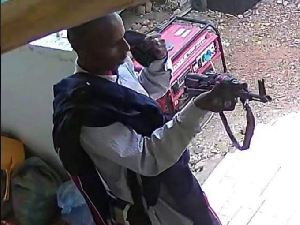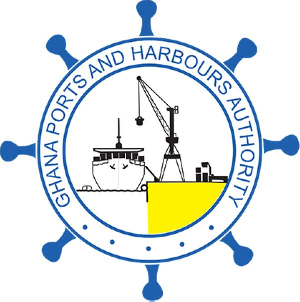When the South African government launched its much-anticipated coronavirus vaccination campaign on Wednesday, Johanna Monama did not pay much attention.
Instead of following live televised coverage of healthcare workers and President Cyril Ramaphosa rolling up their sleeves, Monama, 34, was tending to other problems: hunger, housing and despair. A single mother to a 13-year-old, she has struggled without a steady income since she lost her job at a major South African bank last year.
After she was let go, Monama, an auxiliary social worker, became involved in community work for which she receives a small stipend. Registering people for food parcels in low-income neighborhood east of inner-city Johannesburg, she realized that her personal problems – unemployment, not knowing how to pay rent or school fees – were small compared with those others were facing.
“Some people could no longer look after their families. They had to move to abandoned buildings with no lights and no water,” Monama said. “You feel like the government is failing them.”
South Africa’s economy was already in recession before the first COVID case was reported early last March. High rates of poverty, social inequality, an unemployment rate of nearly 30 percent and public service access disparities caused widespread distress. On top of that, corruption, violence against immigrants and service delivery protests were further sources of social instability.
Since the first strict COVID lockdown was imposed in late March, the economy has been battered, with gross domestic product (GDP) contracting by 17.1 percent year on year in the second quarter of 2020, according to the World Bank.
The unemployment rate reached a record high of 30.8 percent in the third quarter of last year. And even though a moratorium had been imposed, the Socio-Economic Rights Institute of South Africa (SERI) documented continuing evictions.
Zandile Lisa is among those who have lost work due to the pandemic. An entrepreneur working in the arts sector before COVID, the 36-year-old now refers to herself as a “statistic”.
When the pandemic hit, the artist was working on the production of costumes for a local carnival parade. But the event was cancelled due to the lockdown measures. Her other pieces, mainly upcycled furniture like dog beds made out of tyres, “are now a luxury good, which people don’t buy any more”.
Since she lost her source of income, Lisa’s partner has supported her and their two sons. While the five-year-old is with her in Johannesburg, her 16-year-old has been with her family in the Eastern Cape.
She says she applied for a relief grant from the Department of Arts and Culture, “but it seems that only a select few got it”.
The lack of transparency in the allocation of government relief funds has fuelled anger and mistrust. Reports of suspicious deals between government officials and businesses relating to the country’s 500 billion rand ($26bn) COVID relief fund have made headlines since last year. Allegations of corruption and fraud related to the spending of 13.3 billion rand on personal protective equipment (PPE) tenders resulted in a watchdog launching an investigation.
The Special Investigating Unit (SIU) found that “various officials merely rubber-stamped decisions”, and “gave effect to ‘unlawful’ instructions from officials more senior than them”. Its investigations continue.
A survey (PDF) conducted by the University of Johannesburg in October found that 65 percent of respondents believed the president was doing a good job, down from 85 percent about the time of the first lockdown. The same survey found that 57 percent of respondents trusted how the government was handling the pandemic.
The fact that Ramaphosa promised a “comprehensive and integrated society-wide response to corruption” in last week’s State of the Nation address did not make Lisa feel better.
Lisa’s lack of confidence in the authorities extends to the vaccine roll-out. The government had geared up to begin its inoculation campaign with the vaccine produced by Oxford-AstraZeneca, but a yet to be peer-reviewed study found that it offered limited protection against the 501Y.V2 coronavirus variant that has become dominant in South Africa.
The roll-out of the AstraZeneca vaccine was paused, and the campaign instead began with the Johnson & Johnson vaccine, after preliminary trials in South Africa showed it to be 57 percent effective in preventing moderate to severe COVID-19. South Africa is the first country in the world to roll out the single-dose jab, which has yet to be granted emergency use authorisation, as part of a study. Healthcare workers are first in line to receive doses in the first phase of the roll-out.
Minister of Health Dr Zweli Mkhize assured the public that all decisions regarding the vaccine strategy are made on a scientific basis, and the country’s scientists have received praise for their work in identifying the variant.
But Lisa felt that the process lacked transparency. “I believe our government is trying hard to secure the vaccine but one needs to account to its citizens on how it is procured,” she said.
There are also concerns that the abrupt change in the roll-out could harm public trust in the vaccine. Monama, the social worker, said that she does not want to take “a vaccine that no one has ever taken before. Who wants to be the victim? I am not going to take it, I don’t know what’s going to happen to me.”
South Africa is the country hardest hit by COVID in Africa in terms of confirmed infections and deaths, with a case total approaching 1.5 million and nearly 50,000 deaths. Its healthcare system was pushed to the brink by a brutal second wave in December and January, fuelled by a new, more contagious variant of the virus.
As the number of new daily infections in South Africa continues to decline, with an average of 1,980 new daily infections reported according to Our World in Data, some aspects of normal life have returned. But the more contagious 501Y.V2 variant, which accounts for the vast majority of local infections, threatens to reignite infection and hospitalisation rates during the colder months in the middle of the year. A successful vaccination campaign could prove critical to reducing the strain on the healthcare system and reopening parts of the economy.
A COVID-19 Democracy Survey conducted by the University of Johannesburg and the Human Sciences Research Council in January found that 67 percent of South African adults would definitely or probably get the COVID-19 vaccine if it was available to them. Only one in five rejected a vaccine, although the survey was conducted before the AstraZeneca roll-out was paused.
“It seems that many healthcare workers, elderly people or anyone with high levels of exposure or risk of complications are ready for the vaccine”, said Dr Marelize Caminsky, a health practitioner and lecturer in the Department of Complementary Medicine at the University of Johannesburg, who has been working in a local community clinic in a low-income neighbourhood since last year.
“But some people are not convinced of the safety or efficacy of this option.”
She has learned that one of the most important interventions for those who are hesitant about vaccines is education.
“Wear a mask, sanitise, keep your distance, try and do what you can to stay healthy,” she said.
The possibility of a new wave of infections, and other waves after that are among Caminsky’s main concerns, as well as “the impact of co-morbidities on disease outcome in a country like ours where conditions like diabetes, obesity and cardiovascular disease are so rife,” she told Al Jazeera.
Africa News of Saturday, 20 February 2021
Source: aljazeera.com













